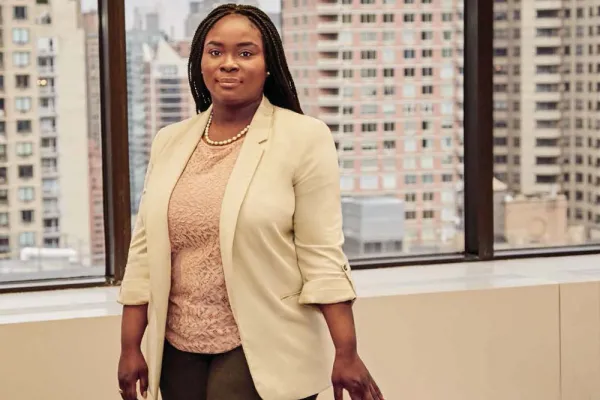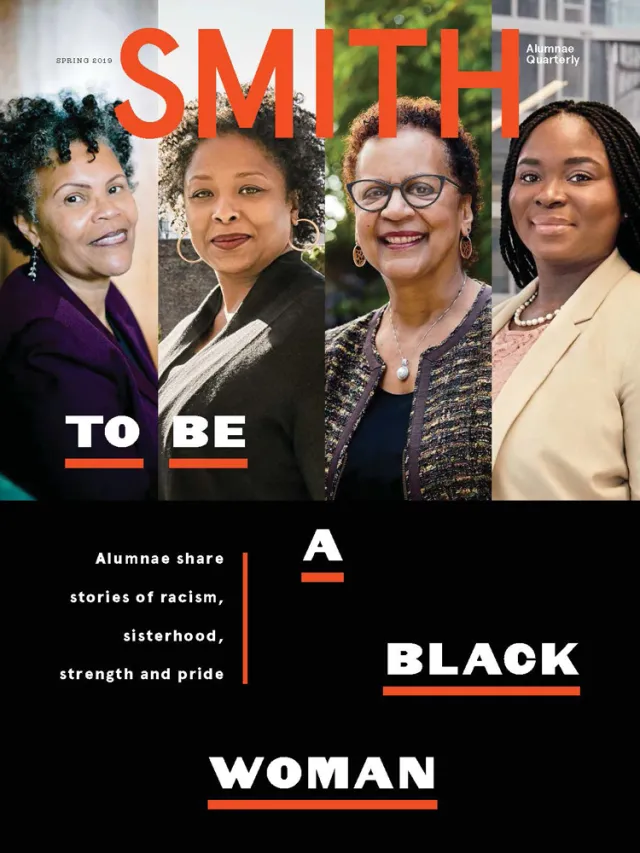‘Am I the Only Black Person in Here?’
Alum News

Published March 12, 2019
I grew up in Flatbush, Brooklyn, which is mostly populated by Caribbean immigrants. For most of my childhood, that was all I knew. Whether it was school, church, my community, my neighborhood, everyone I was surrounded by had a similar background to mine. Their parents also spoke with an accent. It was as if everyone had common ground. High school and then Smith exposed me to people of different backgrounds.
I went into UCLA Law on the heels of a campaign where the Black Law Students Association shed light on the fact that “Out of the 1,100 students at UCLA, only 33 are black.” My immediate reaction was, “Oh, this is what I’m getting myself into. Great.” During my first year, when I walked into anything—a classroom, an event, a group interview—I automatically scanned the room and asked myself, “Am I the only black person in here?”
You become hyperaware of when you’re the only one, or if you’re the first one or if you might be the last one for a while. Sometimes you second-guess yourself: “Am I here because I’m a black female, or am I here because I’m good at what I do?”
When I am the only one, sometimes I say nothing. I just observe. I’ve been in situations where I’ve heard uninformed statements and I wonder, “If I wasn’t here, how far would this have gone?” Other times, I make sure my presence is known and I speak up. I might be the solo opinion in the room, or I might have a few allies. I still get nervous. If I speak up, am I going to be speaking up on behalf of every single black female? Or am I just going to leave it as is and not say anything and not let the people in the room see me as representative of a large group of people?
At my firm I help coordinate the pro bono work caseload. Whether you’re a CEO or you’re a low-wage worker just trying to get your paycheck, you are treated with equal integrity and respect. I realize, probably more often than other people would, that we wouldn’t be able to take on most of these clients if we didn’t have this practice.
The firm has done many criminal-background- check cases upholding Ban the Box laws. People of color, more often than not, are the ones impacted by employers conducting background checks. There are also procedures that employers aren’t following. At the end of the day, I really do appreciate knowing that my work impacts people that look like me. I value that the firm has a commitment to doing this work; even the fact that a position like mine exists demonstrates our willingness to incorporate social justice into our everyday work.
Sabine Jean ’11 is a public interest fellow and associate at Outten & Golden LLP in New York City.
This story appears in the Spring 2019 issue of the Smith Alumnae Quarterly.
SMITH ALUMNAE QUARTERLY

To Be a Black Woman: Alumnae Share Stories of Racism, Sisterhood, Strength and Pride
Deborah Archer ’93, “I’ve Picked a Lane. It’s Racial Justice.”
Billy Dean Thomas ’14, “I Felt Like I Was Being Tokenized”
Caroline Clark ’85, “I Am Not Black or a Woman. I’m a Black Woman”
Charlise Lyles ’81, “Who came to soothe my soul? All my Black sisters”
Lori Tharps ’94, “I Yearned for a Comfort and Confidence in My Blackness”
April Simpson ’06, “If we listen to how others define us, we remain stuck” Q&A with Sandra Williams ’75, senior vice president at CBS Television
Deanna Dixon ’88, “I’m Proud That Our Students Hold Us Accountable”
Joyce Young ’75, “Challenging the Status Quo by Writing My Truth”
“What Excites You, Gives You Joy, Gives You Hope About Black Women in the World Right Now?
Vickie Shannon ’79, “Racism Is Their Problem—Not Yours”
Stephanie Mickle ’94, “Black Women Can Rally Voters, Influence Elections and Win”
Sabine Jean ’11 practices law in New York City, where she helps coordinate her firm’s pro bono work. She likes knowing she can help people who look like her. Photograph by Beth Perkins